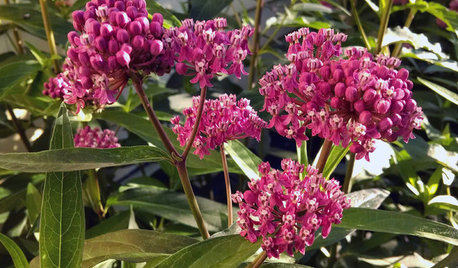Foliage Gone - What To Do With Worm Tea Leachate?
bencjedi
16 years ago
Related Stories

GARDENING GUIDESOh, Deer! 10 Native Flowers That Stand Up to the Herds
Keeping a garden amid hungry deer can be hard, but these plants should fare well
Full Story
GARDENING GUIDESGet on a Composting Kick (Hello, Free Fertilizer!)
Quit shelling out for pricey substitutes that aren’t even as good. Here’s how to give your soil the best while lightening your trash load
Full Story
EDIBLE GARDENSGarden BFFs? Why Your Vegetables Are Begging for Companion Plants
Foster friendships among plants for protection from pests, pollination support and color camaraderie
Full Story
GARDENING GUIDES5 Best-Behaved Trees to Grace a Patio
Big enough for shade but small enough for easy care, these amiable trees mind their manners in a modest outdoor space
Full Story
INSPIRING GARDENSFrom Concrete Lot to Gracious Organic Garden in Seattle
Plants, pests and even weeds have a place in this landscape, which offers an edible bounty and a feast for the eyes
Full Story






squeeze
bencjediOriginal Author
Related Professionals
Ballenger Creek Landscape Architects & Landscape Designers · Canby Landscape Contractors · Cockeysville Landscape Contractors · Long Beach Landscape Contractors · New Cassel Landscape Contractors · Oviedo Landscape Contractors · Pueblo West Landscape Contractors · Wheat Ridge Landscape Contractors · Yukon Landscape Contractors · Bon Air General Contractors · Channelview General Contractors · Dardenne Prairie General Contractors · Deer Park General Contractors · Overlea General Contractors · Waianae General Contractorstclynx
bencjediOriginal Author
wormlover1
bencjediOriginal Author
tclynx